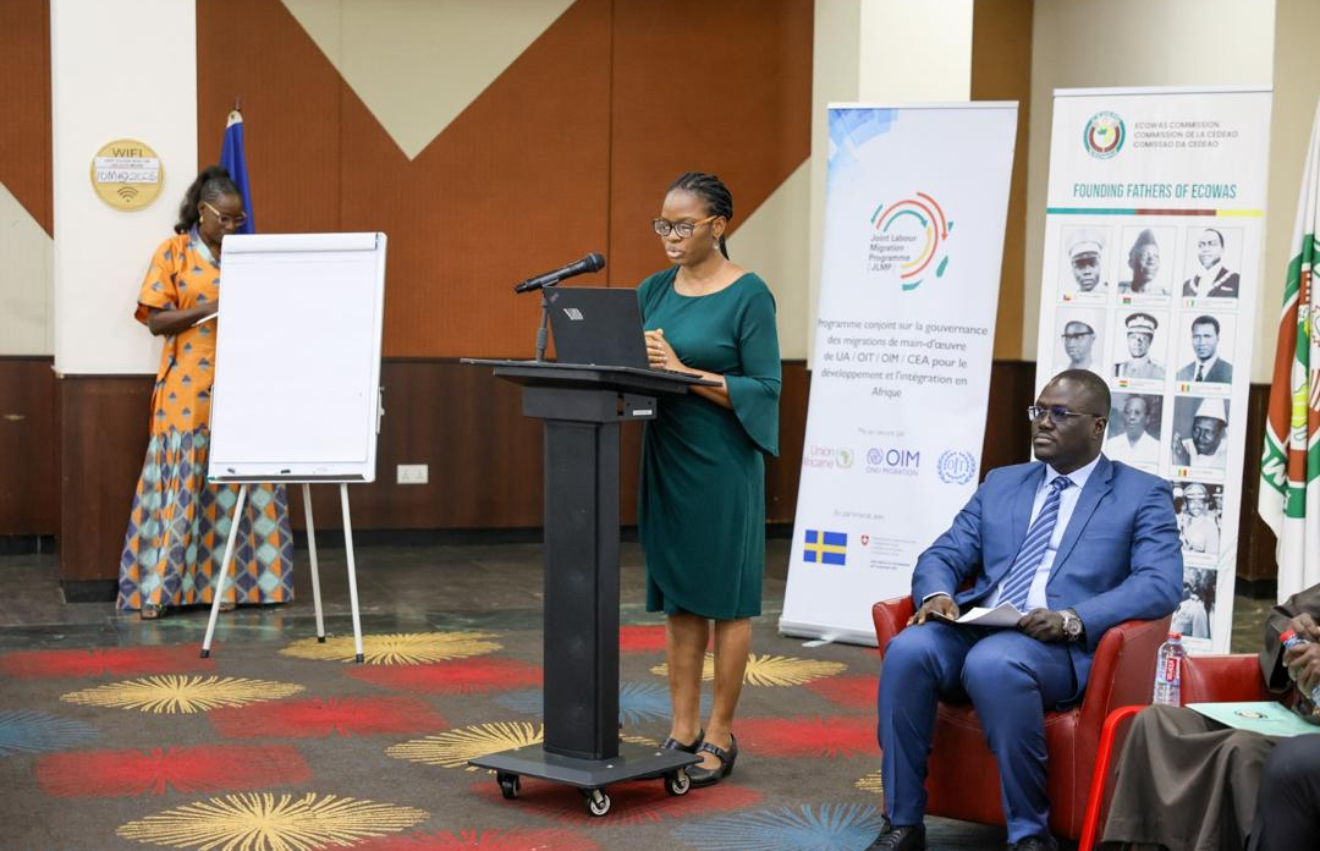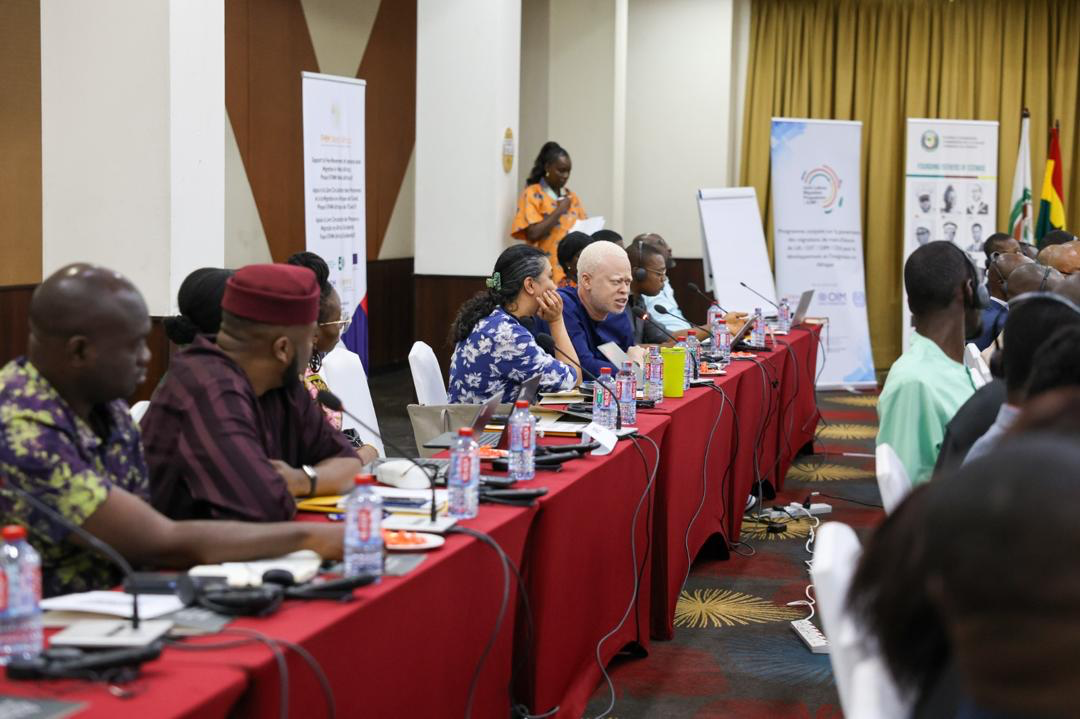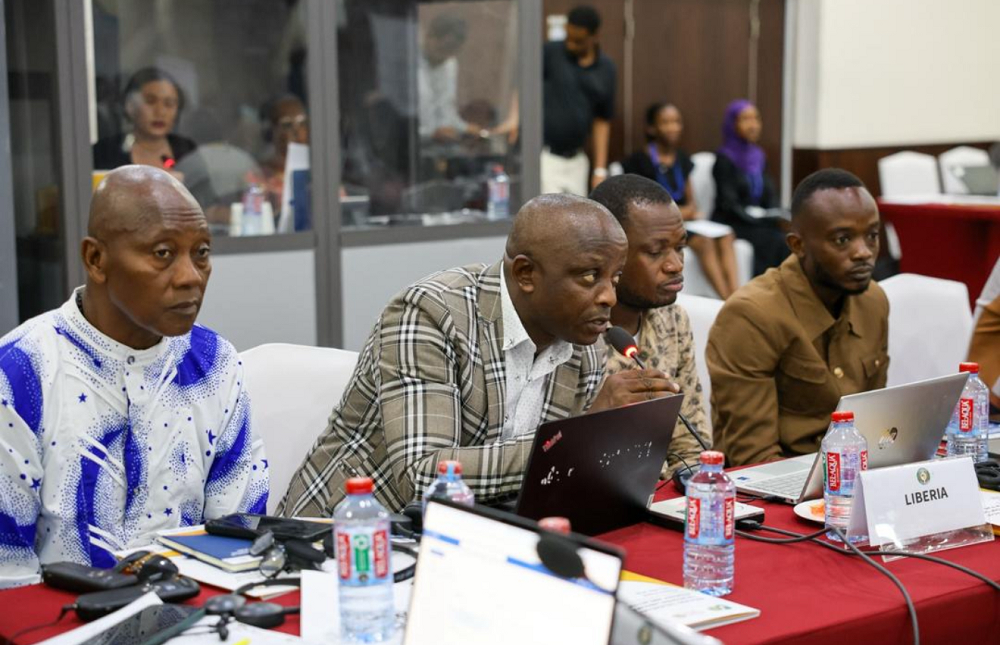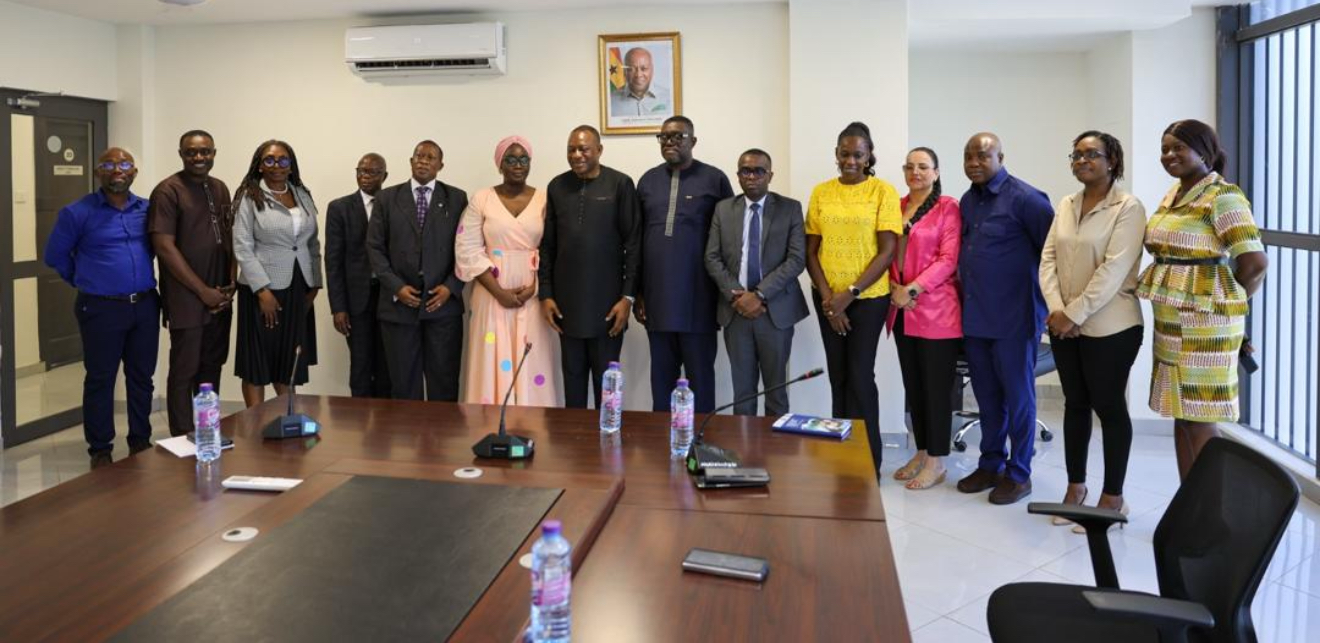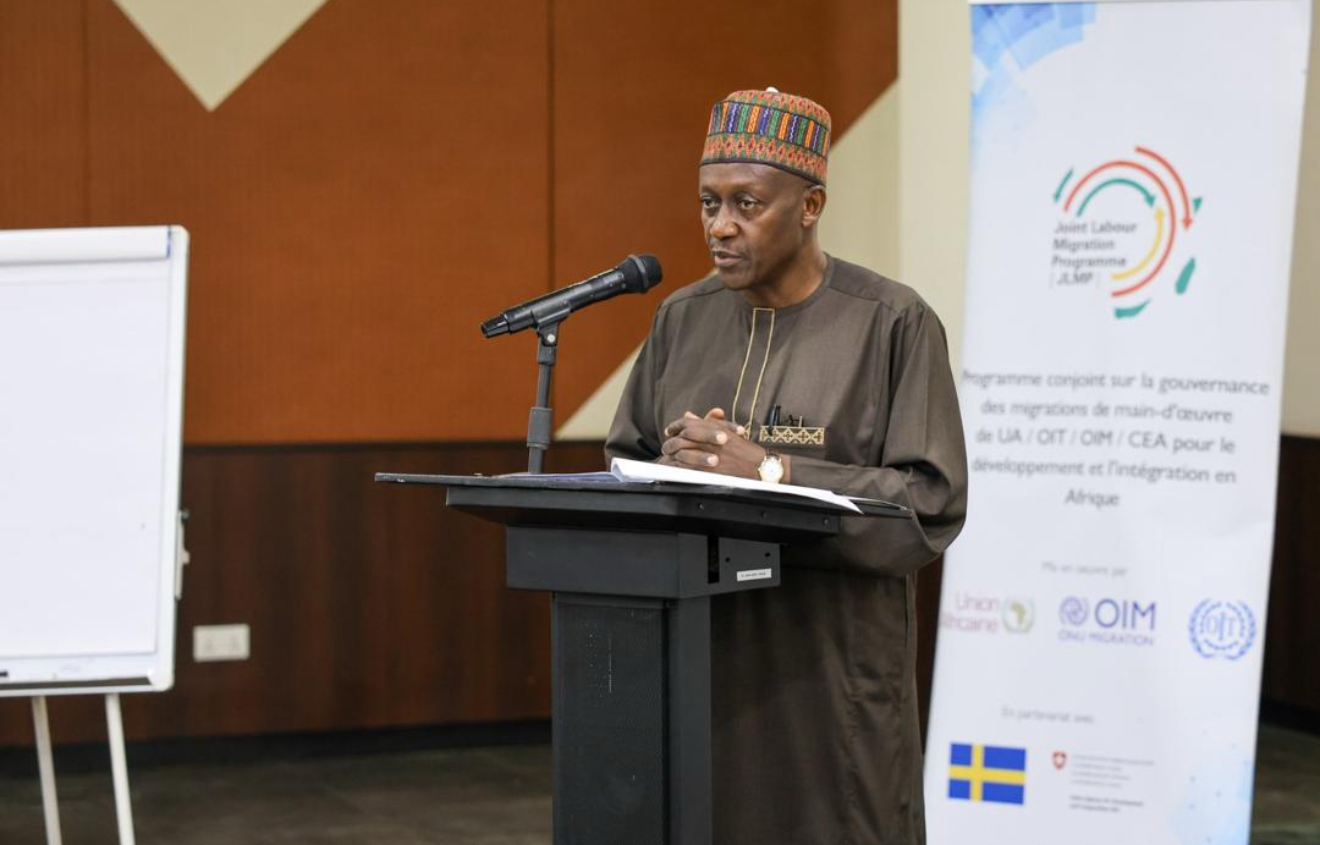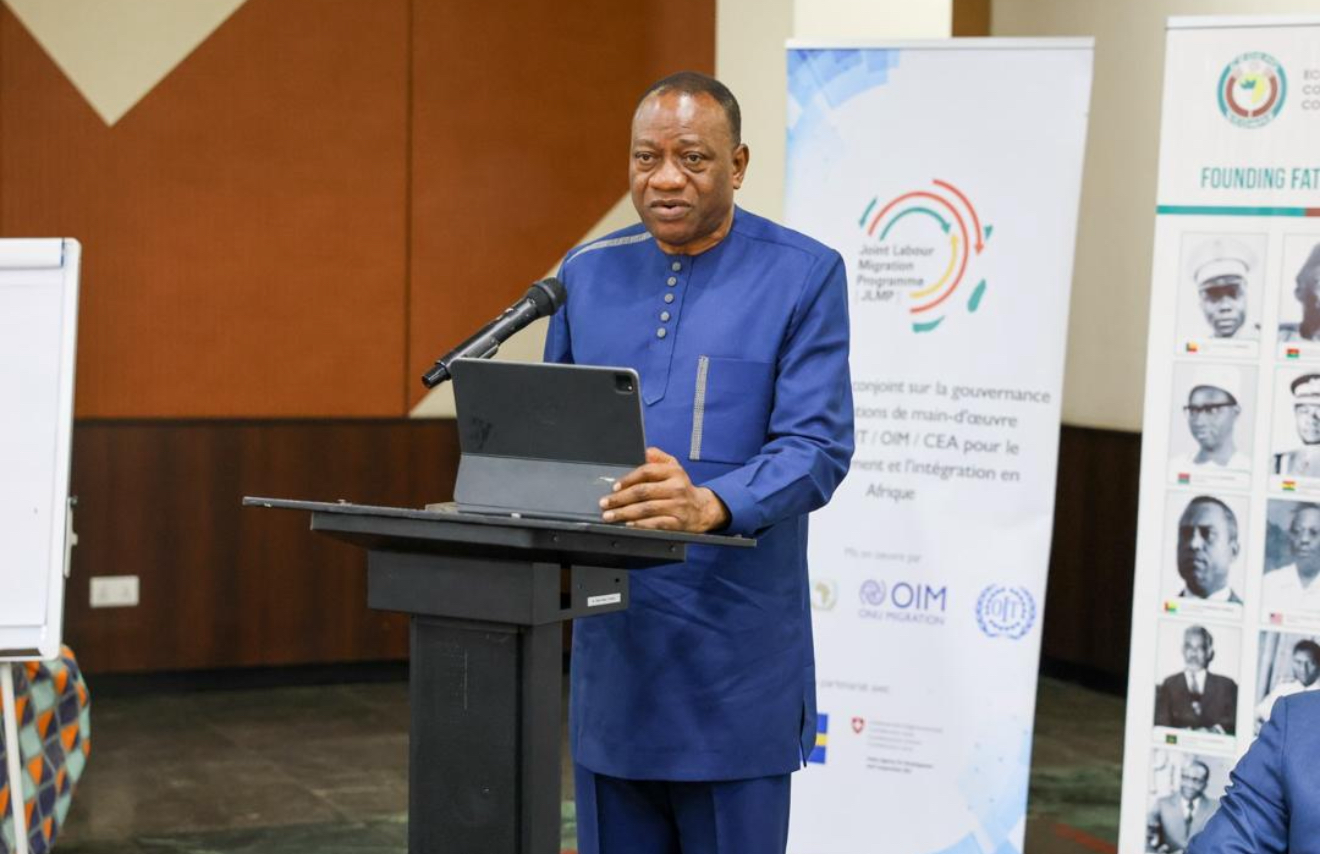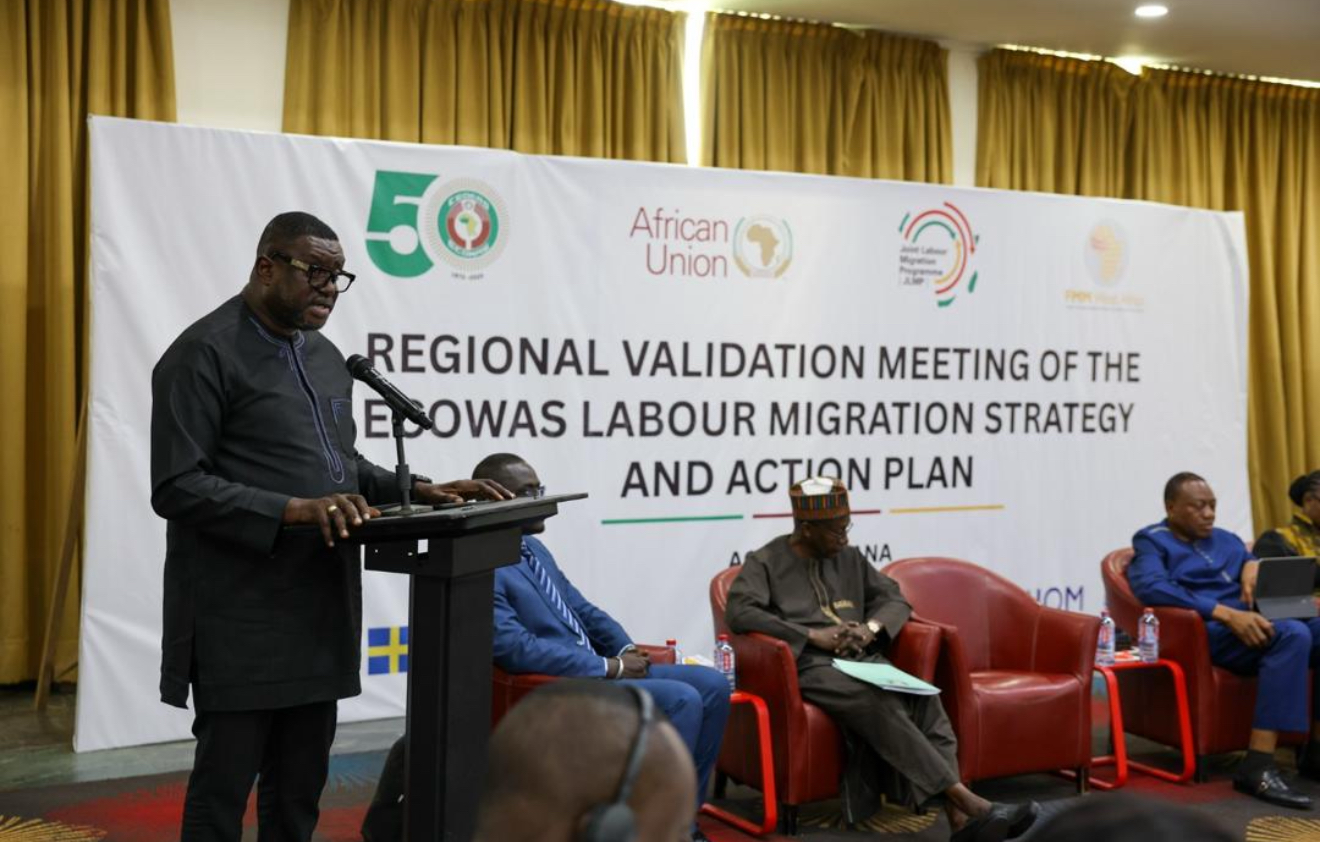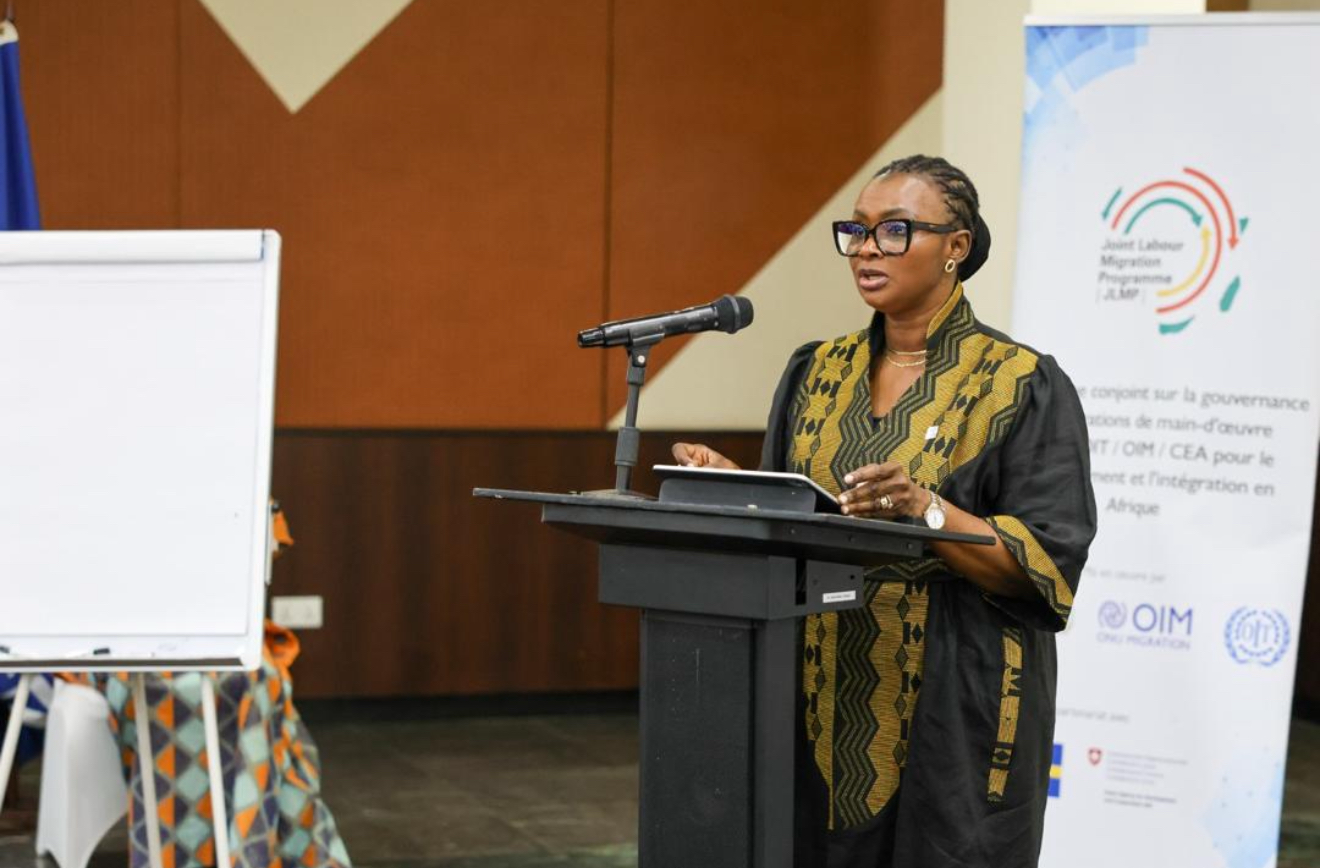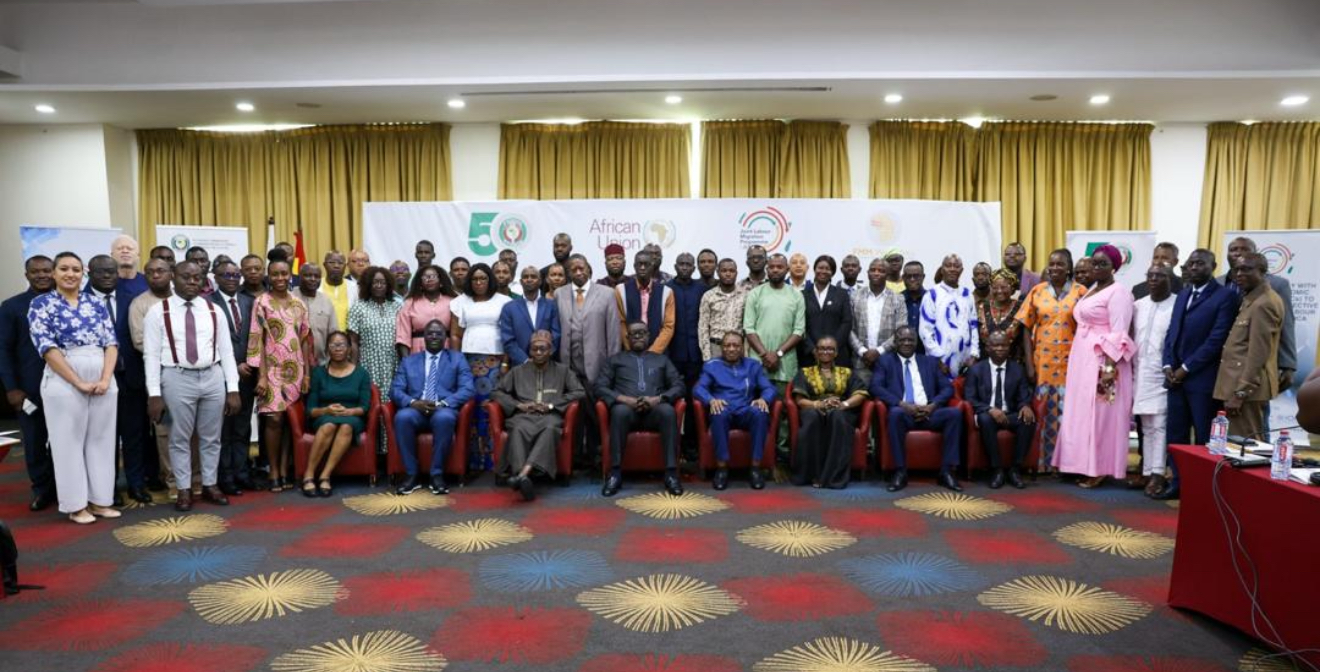ECOWAS unveils regional labour migration strategy to drive mobility, rights, and integration in West Africa
15 May, 2025A historic step in West Africa’s regional integration efforts unfolded in Accra on 13 May 2025, as the Economic Community of West African States (ECOWAS) and its technical partners convened the Validation Workshop of the ECOWAS Labour Migration Strategy and Action Plan (2025–2035), reaffirming their shared commitment to advance safe, regular, and rights-based labour mobility across the region.
The Honourable Minister for Labour, Jobs and Employment of Ghana, Dr. Abdul-Rashid Hassan Pelpuo, officially opened the session, praising the strategy as “a timely opportunity to move from fragmented policies to coordinated regional solutions,” and reaffirmed Ghana’s leadership in promoting inclusive labour governance.
The Commissioner for Human Development and Social Affairs, Professor Fatou Sow Sarr, of the ECOWAS Commission was represented by the Director of Free Movement of persons and Migration, Mr. Albert Siaw-Boateng, who called for “collective commitment to ensure that labour migration serves as a tool for inclusive growth, sustainable development, and regional prosperity, in line with ECOWAS Vision 2050“.
Speaking for the UN system and technical partners, Chief of Mission of IOM Ghana, Benin and Togo, Ms. Fatou Diallo Ndiaye, emphasised the need for harmonised data systems, protection mechanisms for migrant workers, and actionable national policies.
The Representative of the African Union Commission, Ms. Adaeze Emily Molokwu, and the Programme Manager of the ILO FMM2 Project, Mr. Guite Diop, speaking on behalf of the ILO Country Office, commended ECOWAS for its leadership and reiterated the importance of inclusive and evidence-based policymaking. They further underscored the need for Member States to align national instruments with regional frameworks, and to ensure the effective domestication of the Strategy as a driver of sustainable development, social cohesion, and enhanced labour mobility in West Africa.
Representing the Member States, Chair of the Meeting and Director of Wages and Employment in Nigeria’s Ministry of Labour, Mr. Joseph Akpan, highlighted the importance of ensuring that “the strategy is relevant, realistic, and results-oriented,” underscoring the shared responsibility of all stakeholders in ensuring measurable impact.
The workshop follows a virtual pre-validation session held on 6 May 2025 and brings together over 50 representatives from ECOWAS Member States, regional social partners, and development agencies. Participants conducted a detailed review of the Strategy’s five pillars, expected results, and indicators, culminating in its final validation.
Ahead of the workshop, the ECOWAS delegation carried out a series of high-level courtesy visits, including to the Ministry of Labour, Jobs and Employment, the ECOWAS Permanent Representation in Ghana, and the International Organization for Migration (IOM) Ghana Office, reinforcing political will and technical collaboration across institutions.
Backed by the Joint Labour Migration Programme (JLMP) and supported by the Swedish International Development Cooperation Agency (Sida), and Swiss Agency for Development and Cooperation (SDC), the Strategy is anchored in the ECOWAS Vision 2050 and the Protocol on Free Movement of Persons and contributes to the regional architecture commemorating the Community’s 50th anniversary.
The implementation of this Strategy will directly impact the lives of millions of West African workers by formalising mobility pathways, strengthening job-matching mechanisms, and expanding access to social protection for migrant workers. It places particular emphasis on gender equality, youth employment, and the recognition of skills and qualifications—ensuring that migration becomes a tool for empowerment, not vulnerability.
At its core, the ECOWAS Labour Migration Strategy embodies a forward-looking governance model rooted in accountability, inter-ministerial coordination, and regional solidarity. It calls on Member States to translate policy into action through integrated national plans, sustained political will, and inclusive dialogue with civil society and social partners. With this Strategy, ECOWAS positions itself not only as a facilitator of free movement, but as a catalyst for human development, decent work, and regional prosperity.





